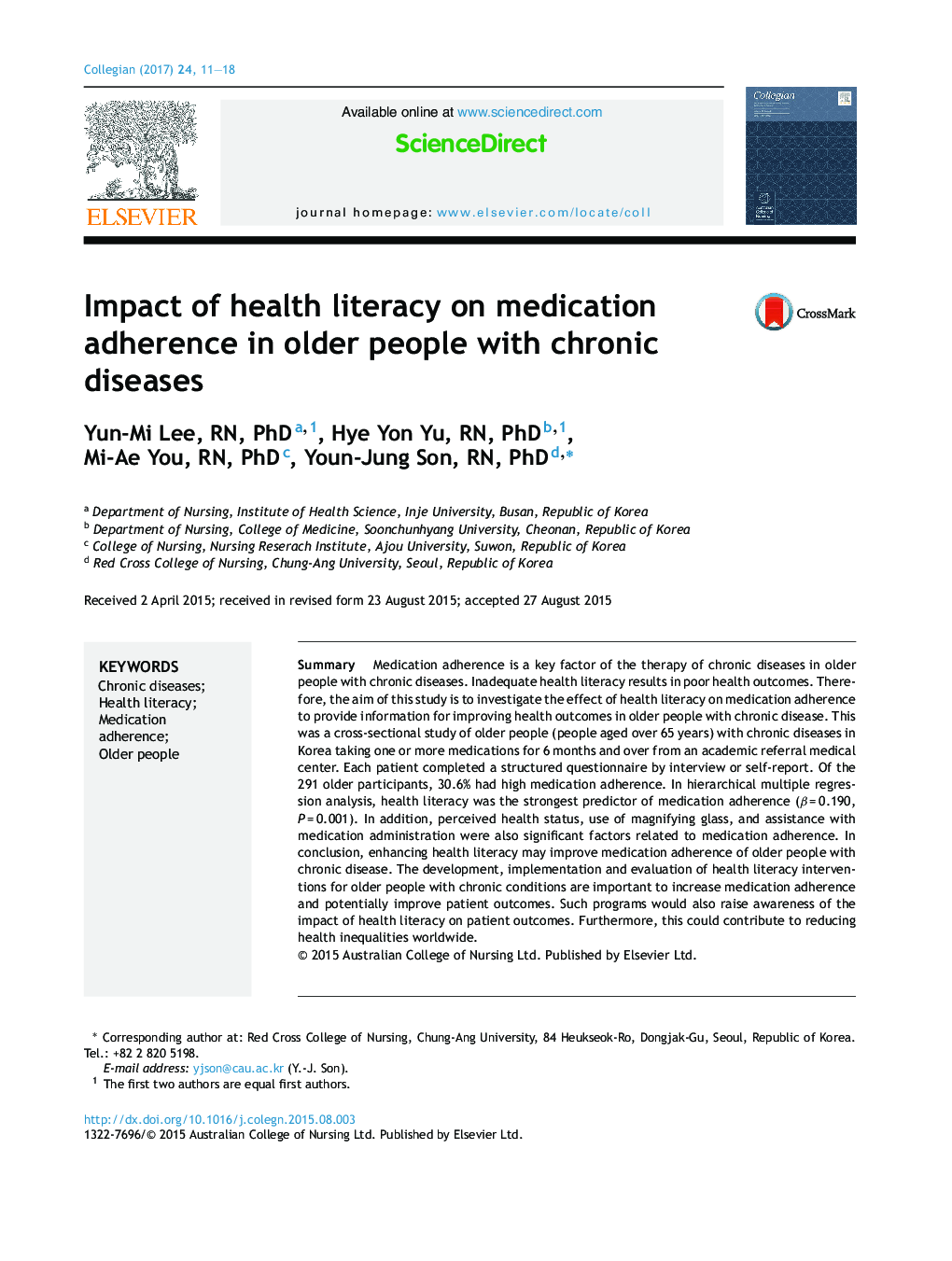| Article ID | Journal | Published Year | Pages | File Type |
|---|---|---|---|---|
| 5567645 | Collegian | 2017 | 8 Pages |
SummaryMedication adherence is a key factor of the therapy of chronic diseases in older people with chronic diseases. Inadequate health literacy results in poor health outcomes. Therefore, the aim of this study is to investigate the effect of health literacy on medication adherence to provide information for improving health outcomes in older people with chronic disease. This was a cross-sectional study of older people (people aged over 65 years) with chronic diseases in Korea taking one or more medications for 6 months and over from an academic referral medical center. Each patient completed a structured questionnaire by interview or self-report. Of the 291 older participants, 30.6% had high medication adherence. In hierarchical multiple regression analysis, health literacy was the strongest predictor of medication adherence (β = 0.190, P = 0.001). In addition, perceived health status, use of magnifying glass, and assistance with medication administration were also significant factors related to medication adherence. In conclusion, enhancing health literacy may improve medication adherence of older people with chronic disease. The development, implementation and evaluation of health literacy interventions for older people with chronic conditions are important to increase medication adherence and potentially improve patient outcomes. Such programs would also raise awareness of the impact of health literacy on patient outcomes. Furthermore, this could contribute to reducing health inequalities worldwide.
